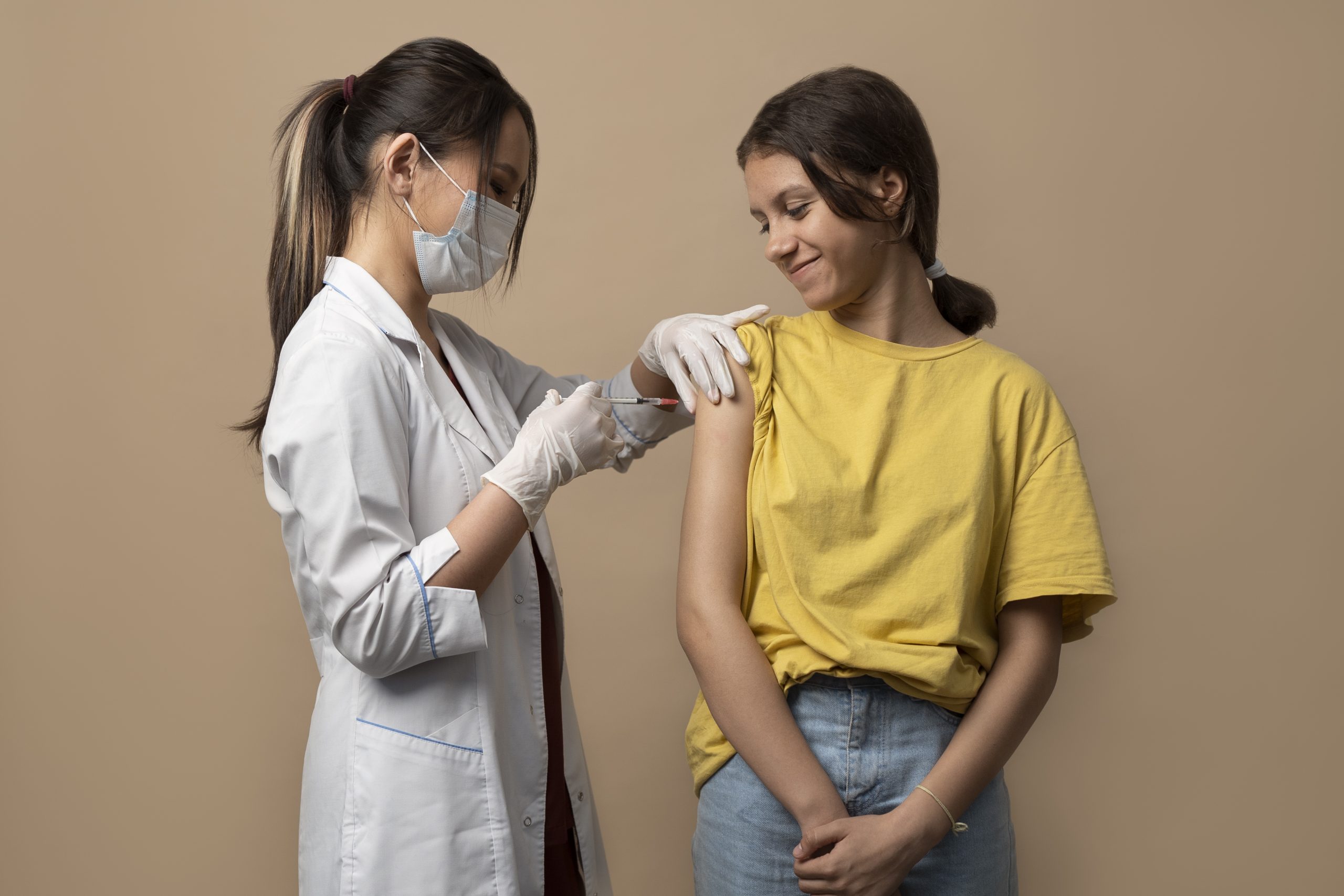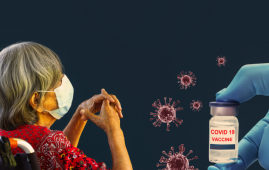

According to recent research from the University of East Anglia, COVID vaccination reduces a person’s risk of acquiring protracted COVID by half.
Two million people in the U.K. are still affected by Long COVID, and new research released today exposes the risk factors for having the disease.
According to the study, which includes more than 860,000 individuals and is believed to be the largest of its kind, those who are overweight, women, smokers, and people over 40 are also more likely to experience extended COVID.
Co-morbidities include asthma, COPD, type 2 diabetes, coronary heart disease, immunosuppression, anxiety, and depression are also linked to a higher risk of lengthy COVID, according to the study.
Prof. Vassilios Vassiliou, from UEA’s Norwich Medical School and Honorary Consultant Cardiologist at the Norfolk and Norwich University Hospital, said, “Long COVID is a complex condition that develops during or after having COVID, and it is classified as such when symptoms continue for more than 12 weeks.
“Just over two million people in the U.K. are thought to suffer with long COVID and it affects people in different ways. Breathlessness, a cough, heart palpitations, headaches, and severe fatigue are among the most prevalent symptoms.
“Other symptoms may include chest pain or tightness, brain fog, insomnia, dizziness, joint pain, depression and anxiety, tinnitus, loss of appetite, headaches, and changes to sense of smell or taste.
“We wanted to find out what factors might make people more or less susceptible to developing long COVID.”
The team looked at data from 41 studies around the world, involving a total of 860,783 patients, to investigate the risk factors for developing long COVID.
Prof. Vassiliou said, “We found that female sex, older age, increased BMI and smoking are associated with an increased risk of long COVID.
In addition, co-morbidities such as asthma, COPD, type 2 diabetes, coronary heart disease, immunosuppression, anxiety and depression are also associated with increased risk.
“Furthermore, severe illness during the acute phase as reflected by the need for hospitalization or admission to an intensive care unit, is also associated with the development of long COVID.
“Conversely, it was reassuring to see that people who had been vaccinated had significantly less risk—almost half the risk—of developing long COVID compared to unvaccinated participants.
These findings are important because they enable us to better understand who may develop long COVID and also advocate for the benefit of vaccination.”
Co-author Dr. Eleana Ntatsaki from UCL and Ipswich Hospital (part of East Suffolk and North Essex NHS Foundation Trust), said, “Our findings help define the full demographic characteristics and the risk factors for developing Long COVID. We can now better understand and serve this population with long term care planning, support for Long COVID clinics and increase awareness of the prevalence and impact of the condition.
“Furthermore, we can have a better strategy for optimizing any modifiable risk factors, with public health promotion campaigns, encouraging smoking cessation, vaccination and healthy weight management in the target population.
“Risk Factors Associated With Post-COVID-19 Condition—A Systematic Review and Meta-Analysis” is published in the journal JAMA Internal Medicine.
more recommended stories
 Heart, Lung, & Brain Risks Persist in COVID-19 Survivors
Heart, Lung, & Brain Risks Persist in COVID-19 SurvivorsA French nationwide study reveals that.
 How COVID-19 and Vaccines Differ in Heart Inflammation
How COVID-19 and Vaccines Differ in Heart InflammationA team of international researchers led.
 Long COVID: Extended Paxlovid Treatment Offers Hope
Long COVID: Extended Paxlovid Treatment Offers HopeA new case series by UC.
 RSV Vaccine Response in Immunocompromised Adults
RSV Vaccine Response in Immunocompromised AdultsAccording to Johns Hopkins Medicine researchers,.
 Gut Microbiome Predicts Long COVID Risk
Gut Microbiome Predicts Long COVID RiskIn a recent pre-print study published.
 COVID-19 & Autoimmune Care Hope: Natural Proteins
COVID-19 & Autoimmune Care Hope: Natural ProteinsRecent research at Umeå University reveals.
 FasL Inhibitor Asunercept Speeds COVID-19 Recovery
FasL Inhibitor Asunercept Speeds COVID-19 RecoveryA new clinical trial demonstrates that.
 Impact of COVID-19 mRNA Vaccine on Myocardial Scarring
Impact of COVID-19 mRNA Vaccine on Myocardial ScarringA new study found a greater.
 Long-term Cognitive and Psychiatric Issues in COVID-19 Survivors
Long-term Cognitive and Psychiatric Issues in COVID-19 SurvivorsA new study published in The.
 Mental Health and COVID-19: Unequal Impacts in LA County
Mental Health and COVID-19: Unequal Impacts in LA CountyA recent study published in the.

Leave a Comment